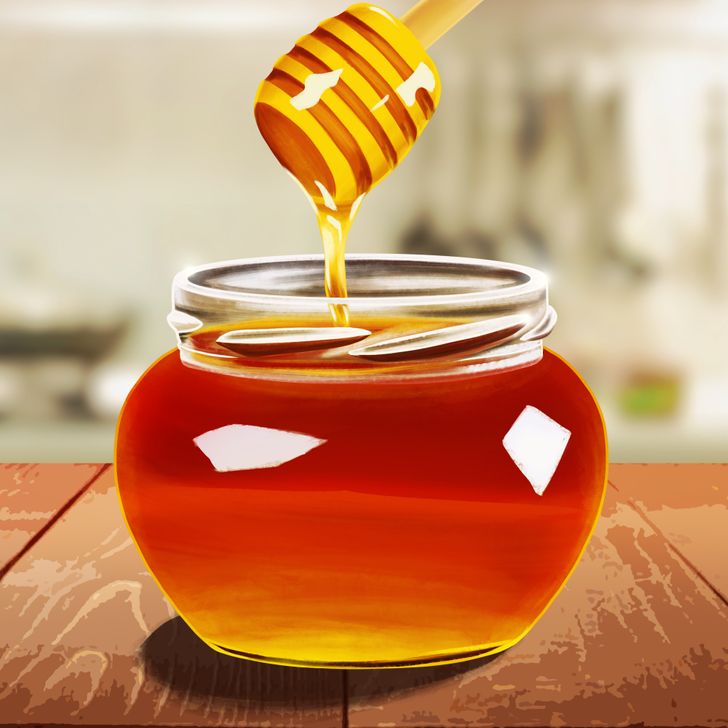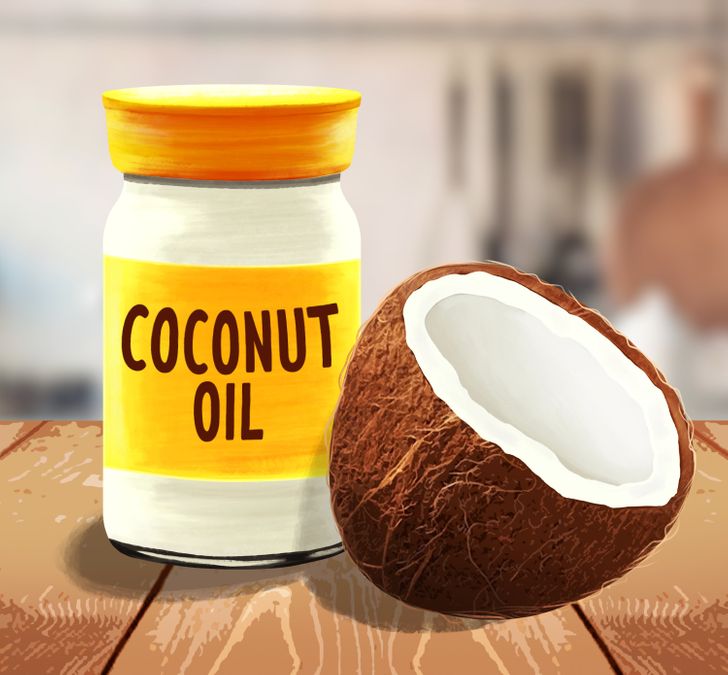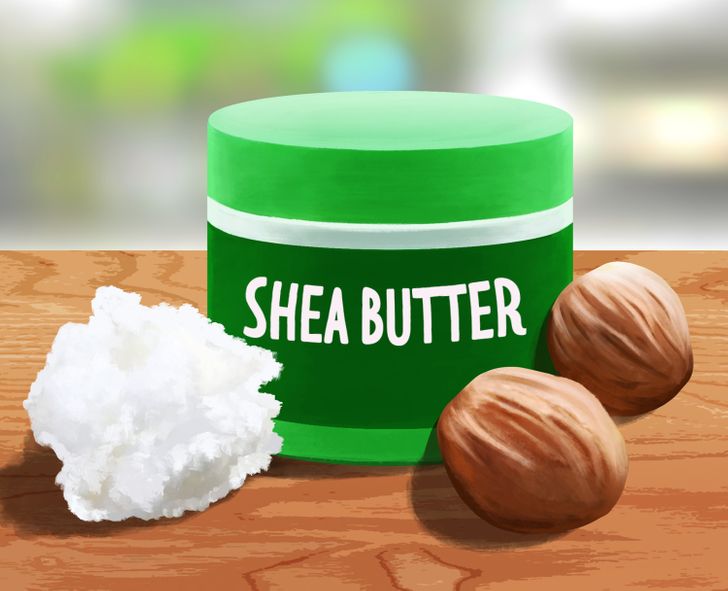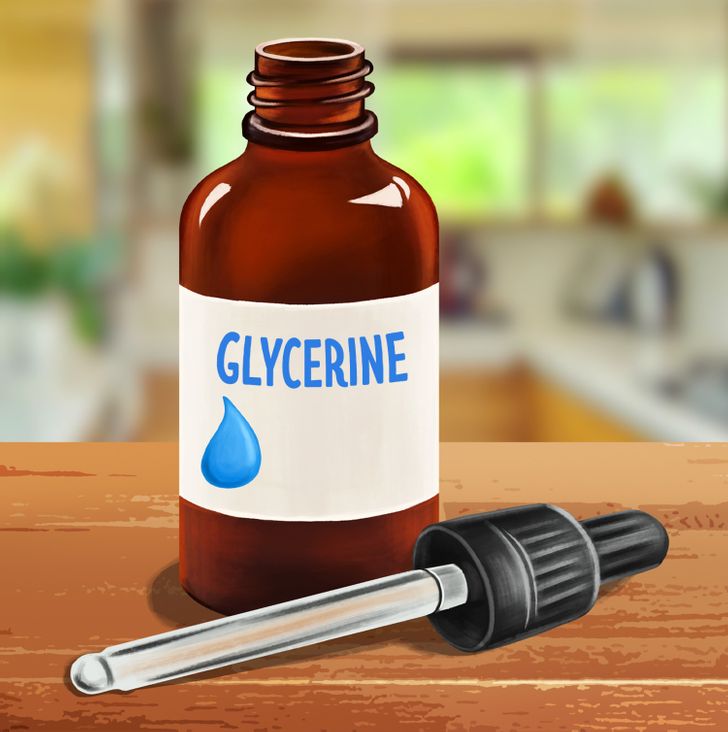How to Moisturize Your Face
Facial skin can become dehydrated for several reasons, including, for example, excessive cleansing or harsh weather. As a result, soft and radiant skin begins to peel off, becoming dull, tight, and sensitive.
5-Minute Crafts would like to tell you about 8 products that can moisturize your face. We’d also like to share some recommendations for how to make this process more effective and avoid mistakes.
1. Honey

Honey perfectly softens and moisturizes the skin and makes it more elastic. The sugar in its composition helps to saturate the skin with moisture and keeps it in the upper layers. Additionally, honey is rich in antioxidants that prevent aging and blemishes.
How to use it:
2. Coconut oil

Coconut oil is rich in fatty acids that moisturize the skin, improve its barrier function, and increase collagen production.
How to use it: Apply coconut oil before going to bed to wake up with soft and radiant skin in the morning. It’s especially effective to apply the oil immediately after a shower.
You can also use olive, almond, sunflower, and castor oils as a moisturizer.
3. Avocado

Avocados are rich in a variety of nutrients, such as vitamins C and E, fatty acids, and carotenoids. Thanks to them, avocado pulp nourishes and moisturizes the skin, protects it from oxidative stress, and prevents early signs of aging.
How to use it:
4. Aloe vera gel

Aloe vera is known for its moisturizing and soothing properties. It can be sold separately as a gel, or it can be found in moisturizers, masks, and other skincare products.
The properties of aloe vera can be explained by its rich composition: it contains vitamins A, C, D, and E, along with zinc, potassium, magnesium, amino acids, polysaccharides, and phytosterols. Thanks to these things, aloe vera perfectly relieves itching and irritation of the skin, prevents it from dehydration, moisturizes it, and helps aid in the healing of minor inflammations.
How to use it: Apply aloe vera gel to your face 2 to 3 times a day.
5. Shea butter

Shea butter is rich in triglycerides, which help soften the skin and reduce moisture loss. It also has anti-inflammatory properties and strengthens the skin’s protective barrier.
How to use it: Apply it to the skin strictly before going to bed since the butter is absorbed slowly. Palm, mango, or cocoa butter can also be used.
6. Glycerine

Glycerine is a simple and effective remedy for dryness. It effectively moisturizes the skin and retains moisture in it.
How to use:
- Method 1. Mix 50 ml of rose water and 50 ml of glycerine, apply the mixture to your skin with a cotton swab, and leave it on overnight. Store the mixture in an airtight jar.
- Method 2. Mix 2 tablespoons of glycerine, honey, and oatmeal. Apply the resulting paste to your skin. When it dries, wipe it off with a cotton pad dipped in milk. Then wash your face with water and pat dry.
7. Moisturizing mask

A face mask is another way to quickly solve the problem of dry skin. Usually, you should keep a moisturizing mask on your face for no longer than 15 to 20 minutes, but there are intensive masks that can be left on overnight.
A moisturizing mask should contain some of the following ingredients:
- Aloe vera
- Hyaluronic acid
- Plant oils
- Ceramides
- Glycerine
- Honey
- Green tea
- Oats
- Collagen
- Elastin
- Keratin
8. Moisturizers

For healthy and radiant skin, use a moisturizer daily. First, it retains moisture in the outer layer of the skin. Plus, it often contains ingredients that deeply moisturize the skin. It can be glycerine, urea, or lactic acid. Additionally, a moisturizer may contain smoothing and softening components, like lanolin, sunflower oil, and jojoba oil.
- For normal skin, creams that maintain the natural moisture balance of the skin are suitable. Choose a water-based product with a light, non-greasy texture. These creams often contain light oils or silicone-based ingredients.
- For dry skin, use a rich oil-based moisturizer that contains water-retaining ingredients. Look for lactic acid and urea among the ingredients of these products.
- For oily skin, light water-based lotions and fluids work well. Look for a product that is labeled “oil-free” or “non-comedogenic.”
- For combination skin, try cream of medium texture. You can also use a light fluid for oily areas and a rich fluid for dry areas.
- For sensitive skin, choose a cream with soothing ingredients, like chamomile or aloe vera. Also opt for products labeled “hypoallergenic,” “fragrance-free,” or “for sensitive skin.”
Useful tips
- Any cosmetic ingredients can cause an allergic reaction. It’s recommended to test the product on a small area of the skin before applying it to the face.
- Don’t use hot water when washing your face, bathing, or showering. High temperatures can strip the skin of its natural oils and moisture. Use warm or cool water instead.
- Choose a gentle cleanser for your face wash that doesn’t dry out your skin.
- Apply moisturizers immediately after showering or washing your face while your skin is still damp. This will help the moisturizing ingredients retain water in the skin.
- If your skin is severely dehydrated, temporarily stop using products with irritants, like retinol or alpha-hydroxy acid.